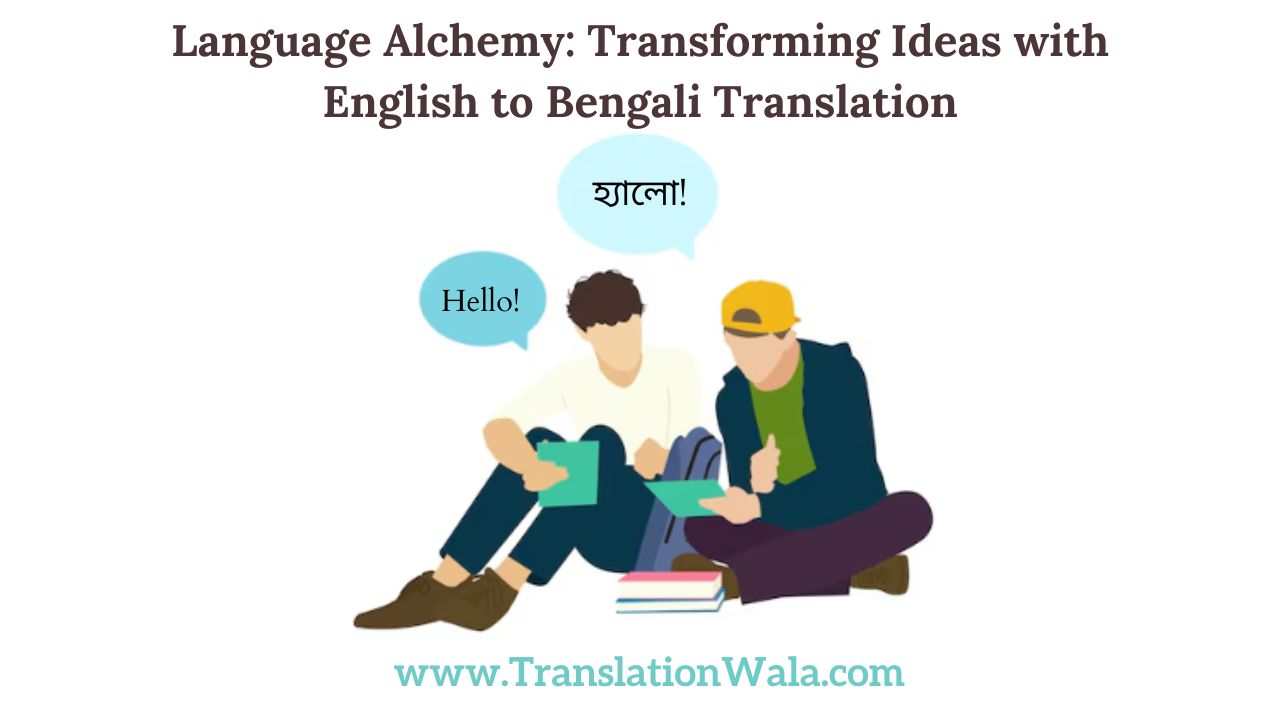People usually think of language translation as a technical process, but it has the power to change things. The person who English to Bengali Translation is like a magician because they have to carefully change thoughts from one language to another. It’s more than just changing words; it’s about getting across the main idea of a message, taking into account cultural differences, and aiming to have the same effect on a Bengali audience.
With its rich literary history and unique atmosphere, Bengali is a difficult language for translators to work with. There are some phrase construction similarities between English and Bengali, but cultural references, comedy, and slang often need more explanation. An expert interpreter not only knows the grammar and words of both languages, but also has a deep understanding of the cultural background of the text.
The Art of Transformation
Think about interpreting a science paper. It is very important to be accurate when using complex terms. The translation acts as a link between science groups, making sure that information flows smoothly. But subtleties can be lost in versions that are too straightforward. A good translation knows the audience and may rewrite difficult words in Bengali in a way that makes them easier to understand without losing the meaning.
Now think about translating a song. Not only is it hard to find words that mean the same thing in Bengali, but it’s also hard to capture the flow, images, and emotional depth of the original. A good translation turns into an artist, looking for Bengali words that make the reader feel the same way and connect with them. They might even change a little about the way the song is put together to make it more like Bengali writing.
Also Read: Connecting Voices: Unveiling Excellence in English to Kannada Translation
Challenges and Considerations
There are many things that can affect the translation process. The group you want to reach is very important. Is the version meant for a child, a general Bengali reader, or an expert in a certain field? Style and skill of the translation will also be important. Some translators like to take things more literally, while others care more about how they sound in the target tongue.
Aside from words and spelling, cultural background is also very important. Some jokes or themes that are only used in English might not work in Bengali. The translation might have to find a related word in Bengali that makes people laugh or understand. In the same way, metaphors or words from one culture may need to be rephrased so they make sense to the audience you want to reach.
The Tools of the Trade
There are a lot of tools that translations can use. Online dictionaries can help, but they don’t always have the detail and subtlety that is needed for good translation. It is very helpful to have bilingual books with notes on how to use the words and cultural references. There are specialized books for areas like law, writing, science, and so on.
Translation memory software can be useful for scientific terms or sentences that are used over and over again. On the other hand, using these tools too much can make versions sound awkward. The human touch is still very important for getting to the heart of the source text.
Beyond Words: The Impact of Translation
English to Bengali Translation is an important part of sharing information. It lets Bengali people get to science discoveries, works of literature, and training materials that were first written in English. Bengali readers can stay up to date on what’s happening in the world through translated news stories and reports.
Cultural sharing is also helped by translation. Translators help people from different cultures understand each other better by making Bengali writings and artistic works available to English users. Bengali viewers can enjoy foreign movies with correct subtitles, and music lovers can discover new music by translating it.
Also Read: Gujarati Tapestry: Precision in English to Gujarati Translation
The Future of Language Alchemy
Translation is an area that is always changing. Machine translation has come a long way, but it still has a hard time with small details of language. Human interpreters will still be very important, especially for writings that are hard to understand or sensitive to other cultures.
With the rise of online sites, interpreters now have more job possibilities. More and more people in Bengali are reading translated news stories and social media posts online. The need for good English to Bengali translation will continue to grow because of globalization.
Conclusion
English to Bengali Translation is like an art. It takes more than just professional skill. You also need to be sensitive to other cultures, creative, and know a lot about both languages. The alchemists of ideas who can change them from one language to another are translators. They make sure that knowledge and inspiration can easily run between countries. This group of language magicians will play a bigger part in the future as the world becomes more linked.
